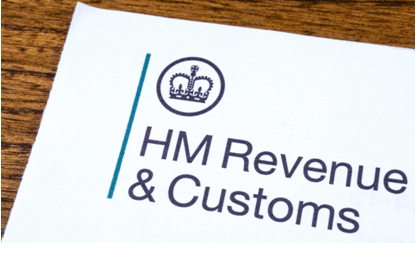Following on from our Brexit Import Guide (which you can find here) this is our how-to guide for exporting from the UK post-Brexit. As you will know, the UK is now out of the EU VAT regime and customs union from 1 January 2021 following the Brexit transition period. Subsequently, the UK has introduced its new Border Operating Model for the control of imports and exports of goods between the EU and UK excluding Northern Ireland (‘GB’ or ‘Great Britain’). This guide will tell you all you need to know about the new rules regarding exporting, and what you need to do to sell your goods overseas.
What You Need To Ensure Before Exporting
Firstly, you must find out whether your goods have any specific rules, such as whether you need any specific licenses to export your particular goods. Goods of a sensitive nature, such as medicinal, weaponry or plant/animal products all require special licenses, as do precious goods such as diamonds or art.
Should you find that you do require a specific license or documentation to export your goods, you must ensure you do so before attempting to export them post-Brexit as otherwise they will not make it through customs.
Don’t Forget Your EORI Number
As with importing, you must also ensure that you have a GB EORI number before attempting to export. This is a unique identification number used on export (and import) paperwork to identify the exporter with customs authorities. It is worth pointing out here that if you are moving goods to or from Northern Ireland you will also need to obtain a separate EORI number that begins with XI.
This also applies for the EU and you will need a separate EU EORI code in order to export goods to the EU.
Depending on how much you sell to another country, you may also have to pay VAT in that country. Each country has a different distance selling threshold so you should be aware of what this is for any country to which you sell a lot of goods. Moreover, if you have to pay VAT to another country you must find out whether that country is one in which you have to appoint a fiscal representative post-Brexit.
Work Together With Whoever Is Receiving The Goods
To do this, it would be first prudent to check that whoever is receiving the goods is able to import them; for example, make sure they are aware as to whether they need to make an import declaration in their country, or whether they need licenses or certificates to receive goods from the UK.
It is also worth considering that it will likely be you who deals with the customs declarations (DDP). Therefore, you will need to fill in a export declaration form, as well as an import declaration form under for the goods to get through both UK customs and EU customs.
What You Need For Customs When Exporting
Customs are undergoing a lot of change post-Brexit. It is possible to appoint an agent to deal with customs for you. Due to the complicated nature of the new customs rules, this is certainly recommended. Regardless of whether you hire an agent or attempt to complete the process yourself, you will need:
- Commodity code for the product, which identifies the digits that identify a product, its materials and production method. The EU uses the six-digit global Harmonised System, or HS Code, and adds a further two digits ‘CN heading’.
- Any certificates and licences
- An exporter statement of origin to allow your importer to qualify for zero tariffs.
For the EU, you may need other documentation to get your goods into the destination country. Ask the person or business buying your goods what information you need to provide. It is worth remembering that you can also apply for a VAT Deferral Account to make this process slightly easier. You can find our article on that service here.
There is also a simplified customs declaration procedure that can be used in specific circumstances. To use this you must have access to CHIEF and you must be authorised by the HMRC.
To become authorised to use the simplified declaration procedure, you need to:
- have a good customs compliance record, including VAT returns and duty deferments
- have a regular pattern of customs declarations against your Economic Operator Registration Identification (EORI) number
- show how you’ll record all declarations for no less than four years after their submission date
For more information on this procedure, click here.
Conclusion
This concludes our two-part guide on how to import and export from the UK post-Brexit. Please feel free to get in touch if you have any further questions.
If you are a business who participates in cross border e-commerce, or exporting of any kind, we would be more than happy to help you register for UK VAT, the UK VAT deferral scheme, gain an EU and UK EORI number, file your UK and EU VAT returns, and help you comply with VAT in case your account faces any issues. At J&P, helping your business is our passion, and we understand that companies across the UK are at risk now more than ever. We are here to support you through Brexit, so please do not hesitate to give us a call on 0161 637 1080 or send an e-mail to enquiries@jpaccountant.com.
